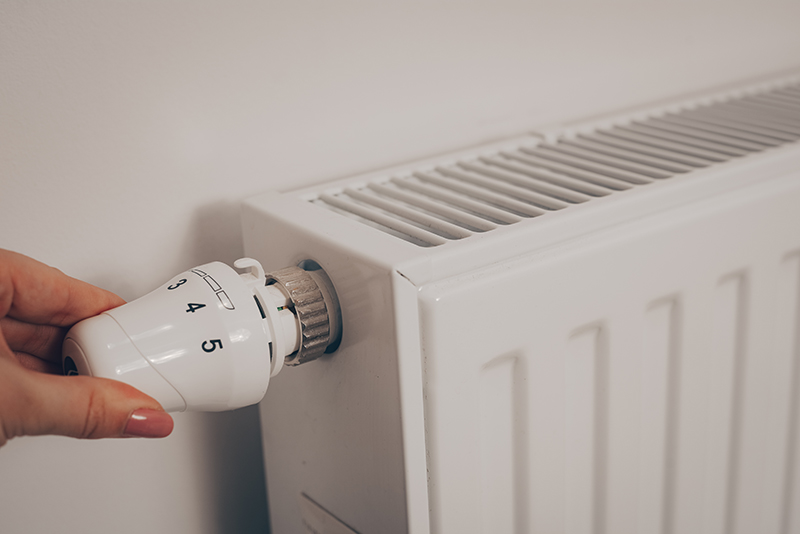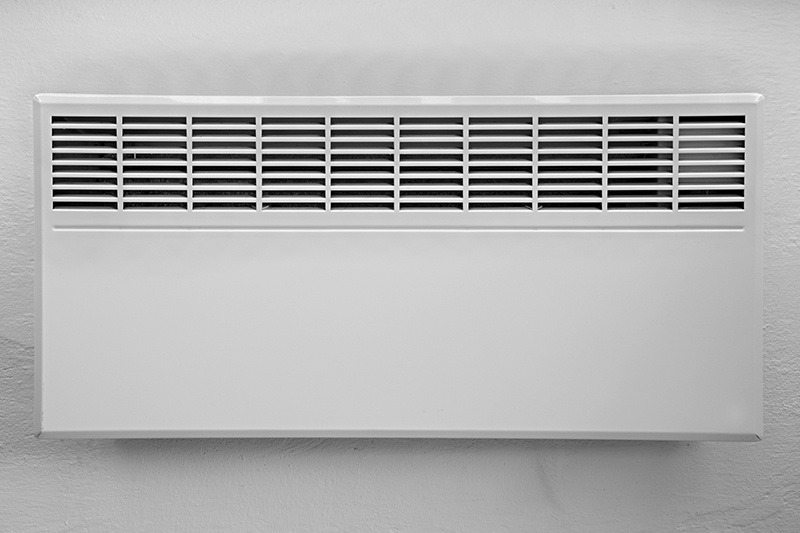How to Make Your Home Heating Work Harder

Published: Friday, 14 April 2023
With energy costs predicted to rise higher still within the next couple of years, finding a way to heat your home without heading straight to the thermostat is crucial for you, the environment and your bank account.
There could be a few reasons why your house isn't getting as warm as it should. A few possible causes include;
- Blocked radiators
- Boiler fault or blockage
- Insufficient insulation in your home
- An issue with your thermostat
While it might seem counterproductive as the days slowly begin to get warmer, now is the best time to look into the most energy-efficient heating for your home. This gives you time to fix any issues before the autumn, when plumbers and engineers begin to get booked up once more: planning ahead means you’ll be warmer next winter.
How can I improve my home’s heating?
Find out where the heat escapes
This is a place where warm air will be escaping out and cold air will be coming in. Common areas where heat can escape include windows, doors, floorboards, chimneys and loft hatches.
One of the easiest ways to find an air leak is to hold a candle near these common areas and see if the flame dances around. A flickering flame means a draught is coming in from somewhere nearby.
Seal your windows
One of the simplest and most effective ways to seal windows is with weatherstripping. Weatherstripping is a material, usually made from foam or felt, that is placed around the door or window frames to block air leaks, prevent draughts, and reduce energy loss. It should be applied between the movable parts of the window, to make sure it can form a tight seal when the window is closed.
Draught-proof your doors
If you live in an older house, you might have noticed more draughts around your window and door frames. For older doors with wide gaps around the sides, you can use weatherstripping foam around the edges of the door. You should also check if your door has a threshold gap at the bottom, and seal it using an adjustable threshold sealant.
Once sealed, for extra protection, you may also want to install a draught excluder along the bottom of the door to help reduce heat loss in wintertime.

Invest in double-glazing
Many older homes in the UK have single glazing installed, rather than double. Installing double-glazing is an effective way to help prevent heat from escaping in the home, as it provides two panes of glass with a layer of air or gas such as argon between them.
This layer acts as additional insulation, trapping heat inside the home and blocking cold outside air from entering. The space between the two panes also acts as a barrier, reflecting infrared radiation that would otherwise escape through a single pane of glass. As a result, double-glazing helps to keep homes warmer in winter, and cooler during the summer months.
Insulate your loft and walls
Loft and wall insulation prevent heat loss by trapping air in its fibres, creating a barrier between inside and outside temperatures.
Properly installed loft insulation can reduce energy bills by up to 10-15%, making it an effective way to save money on heating costs. Additionally, loft insulation has the added benefit of helping to reduce noise pollution from outside sources.
Invest in an electric heater
Electric heaters work by converting electricity directly into heat and can be used to supplement existing central heating systems or provide targeted localised warmth in a single room.
What’s more is that electric heaters are typically more energy-efficient than traditional heating sources, such as furnaces or boilers, and do not require burning any fuel, which means they produce no pollution or high energy bills.

FAQs
Is 15 degrees too cold for a house?
Although many people equate rising energy bills with turning off the heating or setting it to a lower temperature, still keeping your home to a minimum of 18 degrees is vital. This is particularly true for vulnerable people, like newborn babies, the elderly and those who are unwell, with this vulnerable group requiring temperatures to be in the region of 20 degrees. Find out more about this here.
In the summer, your heaters may not be needed at all - but make sure to turn them on if temperatures are due to drop at night. When it comes to cooling down, invest in a powerful fan or open some windows to circulate cool air around your home.
How many hours a day should heating be on in the UK?
As each individual and home is different, this time varies. The overall rule to this is that if your home experiences greater heat loss, you will spend more money maintaining the inside temperature.
In a recent study, it was found that most people turned on the heating for a few hours at night and a few hours in the morning, as these are often the coldest hours of the day.
But particularly in the winter, knowing when the temperature of your home is dropping is not as easy to identify until it becomes ‘too’ cold, resulting in your boiler being forced to work harder. In order to prevent this you may want to invest in heating controls. These heating controls note when your home's overall temperature is dropping and turns up the heating slightly, there are also options on the market for you to control this wirelessly from afar.
Is it cheaper to leave the heat on all day?
Leaving your heating on all day may prevent your heating from working harder during specific hours, but your overall energy costs will still be higher due to your heating being on for much longer.
Due to this, it is advised that you only turn your heating on when your home temperature starts to drop - as mentioned in the previous section of this article.
Stay warm without breaking the bank
Making your home heating work harder is a great way to save money on energy bills. By taking advantage of heating controls, insulation, door/window sealants, draught excluders and installing double glazing, you can make sure that your heating system works as efficiently as possible, and keeping you cosy all year long.
Contact us today to see how our friendly team can help.

